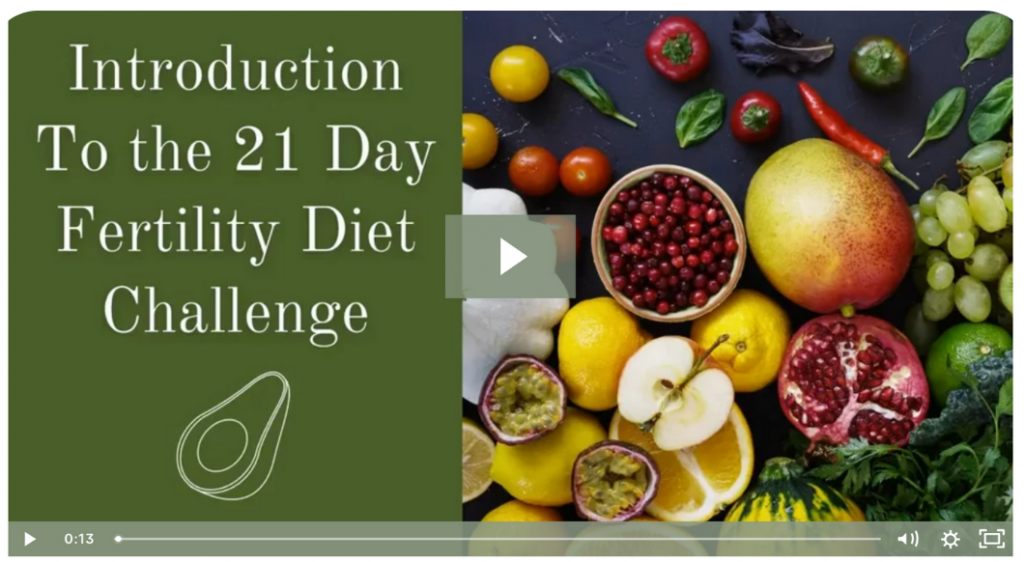Your immune system is one of the most delicately balanced systems in the body. A healthy immune response is intricately involved in having optimal fertility health. The main elements of the immune system are: the thymus gland, bone marrow, the spleen, enzymatic proteins and the lymphatic system. The immune system is extremely sensitive to nutritional deficiencies. All of the immune system elements need to be nourished and functioning well to keep you healthy and fertility at its peak.
Everyone’s immune system works differently and imbalances affect fertility in various ways. Endometriosis, PCOS (Polycystic Ovarian Syndrome), POF/POD (Premature Ovarian Failure, Premature Ovarian Dysfunction), Antisperm Antibodies and Hypothyroidism are all linked to autoimmune issues and can affect fertility. Recurrent miscarriages are another fertility issue that is linked to problems with immune response.
Often, a client will ask for a specific herb or supplement for an immune fertility issue like high NK (natural killer) cells. However, what works well for one person may not work for another. Further, high doses of supplements could aggravate an immune-related fertility issue. A dietary approach is gentle and can be customized according to your unique needs and situation.
A Balancing Diet for Immune Related Infertility
Balance is the key! Excessive dieting and overeating are damaging to immune health. Focus on having:
- a healthy protein with each meal (organic poultry, eggs, kefir, beans, peas and lentils)
- 5-9 daily servings of fruits and vegetables (berries, dark greens and cruciferous veggies are especially good)
- a healthy fat with each meal (avocado, seafood, nuts and seeds (if available in your area), unrefined oils like coconut oil or olive oil)
- 1-3 servings of gluten-free whole grains daily (quinoa, brown rice, millet, teff, amaranth)
Drink 8 eight-ounce servings of water daily. Water is critical to virtually all body processes and to the success of any Natural Fertility Program. Herbal tea consumption counts toward daily water intake as well.
Strive to fill half your plate with organic fruits and vegetables at each meal. Fresh fruits and vegetables are naturally anti-inflammatory, high in chlorophyll and enzymes that flush toxins out of the body. Fresh fruits and vegetables keep the body more alkaline, ideal for overall health and fertility health. Fresh fruits and vegetables also are rich in antioxidants like vitamin C, A, and folate that directly support egg and sperm health.
Eat cultured foods. Some experts theorize that about 80% of your immune response comes from the gastrointestinal tract, your “gut”. Probiotics from cultured foods improve the balance of healthy bacteria in your gut and helps:
- enhance antibody production
- manufacture B vitamins
- metabolize hormones
- crowd out pathogens- viruses, bacteria, parasites, etc.
Cultured foods to include in your diet on a regular basis include: organic yogurt, kefir, lassi, kimchi and raw sauerkraut.
Add organic mushrooms like Shiitake and Maitake to your diet. These specialty or medicinal mushrooms are immune system tonics that you can add to your diet a few times a week. They are well tolerated and improve strength and balance in clients with immunological fertility issues. Whole, organic maitake, while hard to find, are a treasured delicacy in Asian cooking. Maitake is especially good in salads, soups, or as part of a healthy marinade. Organic, shiitake mushrooms are easier to find, and another excellent choice to add to soups like our Immune Tonic Soup, marinades or a healthy stir fry.
Watch The Introduction to the 21 Day Fertility Diet Challenge
- Learn how to transition to a natural fertility diet by focusing on the important 5
- Get all the details on how to use nutrition as a tool for hormonal health, cell protection and fertility wellness
- An effective tool to help your tastebuds transition towards healthier foods
- Learn which foods are most important for fertility and how to regularly eat them

Foods To Avoid in a Diet for Immunological Fertility Issues
The immune system is easily imbalanced by the wrong food choices making the task of avoiding triggers in your daily diet a very important one.
Refined Sugar/Refined Carbohydrates: In moderate amounts, natural sugars from fruit offer a quick boost for energy and support metabolism. However, today there is no question that refined sugars and carbohydrates are over-consumed. The average American gets around 20% of their daily calories from refined sugar. Sugar is an anti-fertility food, a highly inflammatory food, and depresses a healthy, normal immune response.
Further, sugar boosts free radical production and can increase the risk for Bacterial Vaginosis (which can lead to PID) and Candida Yeast infections. Too much sugar can lead to insulin resistance, a hallmark for women with PCOS, an imbalance in hormones (particularly testosterone) and can accelerate cell aging. Be sure to avoid or greatly minimize sugary sweets, baked goods, candies, white rice, refined bread, and pastas if you’re addressing an Immune Fertility Issue.
Gluten: For many people, gluten is an irritant that affects the gut lining (where much of natural immune response is generated). Gluten is present in glutinous rice, barley, wheat, rye, even processed foods and canned foods, so be sure to read labels. For sensitive people, continued consumption of gluten can cause the gut to become more permeable, allowing proteins to slip through the wall and into the bloodstream where the immune system then recognizes them as a potential invader.
While not everyone is sensitive to gluten, for people who are, gluten can aggravate inflammation, and in particular, worsen pain for women with endometriosis. Eliminating gluten is one of our first recommendations for women with endometriosis to encourage the reproductive and digestive system to become free flowing again.
Signs of gluten sensitivity to watch for: mental fog, fatigue, gas, bloating, and headache. Eliminating gluten is also imperative for a person diagnosed with Celiac disease (a true gluten allergy) to get back on the track to overall health and healthy fertility.
Imbalanced Omega 6 to Omega 3’s: Omega-3, 6 and 9 fatty acids are all important for hormone balance and fertility. Yet, today most of us are getting many more omega 6’s in relationship to omega 3 fatty acids. (Note: omega 9’s are not technically essential fats because the body contains the necessary enzymes to synthesize them in the body.)
Omega 6 oils, while healthy in moderation, are over-consumed in Western diets. They are found in vegetable oils (like corn, canola or soy oil), which are used to make processed foods like salad dressings, baked goods, chips, crackers and other “foods in a box”. Further, the meat of animals fed a grain-based diet (like factory farm animals) contains an imbalance of omega 6 to omega 3 fatty acids.
An ideal balance of omega 6 to omega 3’s is somewhere between 1:1 and 1:4. Too much omega 6 in relation to omega 3 has a pro-inflammatory effect and can worsen an immunological fertility issue.
To get more Omega 3’s in your diet, consume cold-water fish, seafood, flax or chia seeds, and dark greens like arugula, spinach and purslane. Also, cut way back or eliminate consumption of processed “foods in a box” and meat from factory farm animals. Try a little olive oil, lemon juice and herbal seasoning on your salad instead of commercial dressings.
Allergen foods: Dairy, wheat, nightshade plants, soy and corn are common allergy triggers that affect immune balance. If you’re unsure what you’re reacting to, an elimination diet can provide clues. Eliminate the suspect food for a week before trying to reintroduce it. If you’re sensitive to it or have an allergy, you will note reactions (skin, digestive or other) upon the first or second time you reintroduce the food to your diet. Start a food journal to keep track of what foods are working for you, and what you may need to eliminate from your diet in your Fertility Program.
In Summary, Eat Well!
If you’re addressing an immune fertility issue, you can make a lot of progress in rebalancing health and restoring fertility just by making dietary adjustments. An anti-inflammatory diet can go a long way towards improving balance and restoring a normal immune response. A healthy lifestyle is also imperative to recovery, so be sure to get plenty of sleep and address stress that affects immune balance.
In addition, we offer education on Immunological Fertility Issues and therapies like Systemic Enzymes, which provide immune benefits without great risks. If you’re unsure where to begin and have been dealing with an immunological fertility issue for a long time, a Fertility Consultation is another good option.
- Personal correspondence with Anna-Marija Helt, Clinical Herbalist
- Rodriguez, H. (2017). The Immune System Diet. Retrieved from: http://blog.stresscompany.com/the-immune-system-diet/
- Kaplan, G. (2015, Nov.). 11 Food Rules For the Ultimate Anti-Inflammatory Diet. Retrieved from: http://www.mindbodygreen.com/0-22607/11-food-rules-for-the-ultimate-anti-inflammatory-diet.html
- Mercola, J. (2017). Fermented Foods. Retrieved from: http://articles.mercola.com/fermented-foods.aspx
- 6 Immune System Busters & Boosters. (2005-2017). Retrieved from: http://www.webmd.com/cold-and-flu/cold-guide/10-immune-system-busters-boosters#1
- Null, G. (2014, Feb.). Sugar: Killing Us Sweetly. Retrieved from: http://www.globalresearch.ca/sugar-killing-us-sweetly/5367250
- Raupp, A. (2014, June). Can’t Get Pregnant: Why You May Have An Autoimmune Disease. Retrieved from: http://www.mindbodygreen.com/0-14209/cant-get-pregnant-why-you-might-have-an-autoimmune-disease.html
- Top Ten Foods Highest in Omega 6 Fatty Acids. (2016, Nov.). Retrieved from: https://www.healthaliciousness.com/articles/high-omega-6-foods.php
- Kessler, C.(2010, May). How Too Much Omega 6 and Not Enough Omega 3 Is Making Us Sick. Retrieved from: https://chriskresser.com/how-too-much-omega-6-and-not-enough-omega-3-is-making-us-sick/
- Barton, D. (2017). Sugar May Contribute To Infertility. Retrieved from: http://natural-fertility-info.com/sugar-contributes-to-infertility-tips-for-avoiding-sugar-overload-for-the-holidays.html





